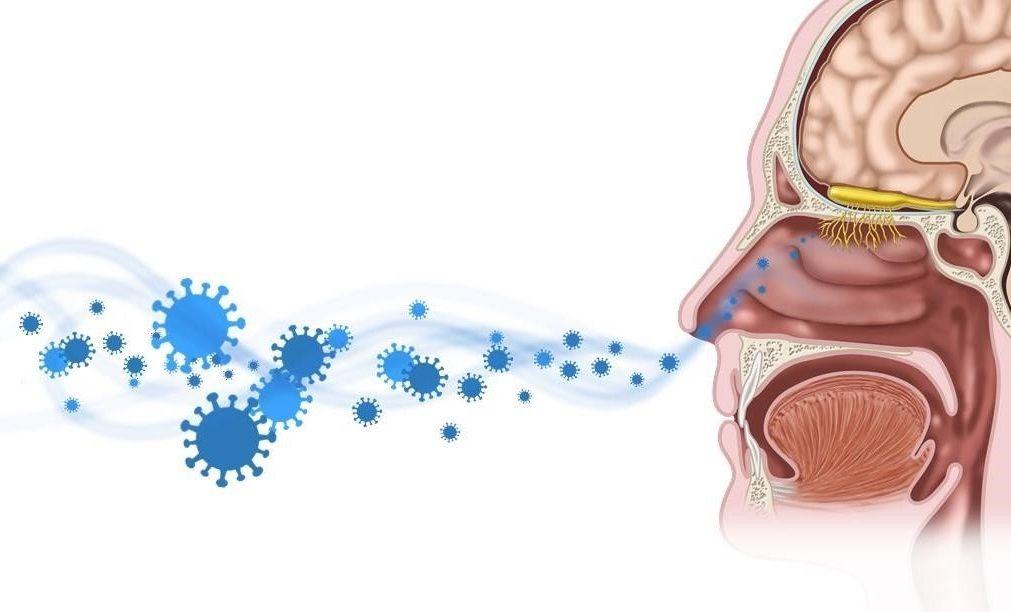The nasal mucosa is one of the most important places where a virus penetrates our body. Early on in the pandemic it was thought that the virus could infect the cells of the olfactory mucosa in the nose and hitchhike its way via the olfactory nerve to the brain.
First study
Last year, an international research team, led by UZ Leuven and the Max Planck Research Unit for Neurogenetics in Germany, set up a large trial in deceased COVID-19 patients in order to unravel how the virus could cause loss of smell. The study showed that the coronavirus infects the supporting cells of the olfactory mucosa, but not the nerve cells with the olfactory receptors.
New findings
Recently the team published a second trial in which they assessed quite some additional tissue samples, including from people infected with the Delta and Omicron variants of the coronavirus. They also examined whether there were traces of the coronavirus in the frontal lobe, close to the olfactory nerves.
"We could not find any proof that the coronavirus can penetrate the brain via the nasal mucosa. This is very good news and this insight will help us unravel the exact mechanism of loss of smell further."Prof. dr. Laura Van Gerven, nose-throat-ear specialist at UZ Leuven
Prof. dr. Laura Van Gerven, nose-throat-ear specialist at UZ Leuven and principal investigator of the study: “All samples came back negative: we did not see any infected nerve cells anywhere. We also did not find any virus particle in the cerebral fluid. So we could not find any proof that the coronavirus could penetrate the brain via this route. It seems that certain cells in the olfactory mucosa form an efficient anatomic barrier against the virus (and probably also many other pathogens that infect the olfactory mucosa). This is very good news and this insight will help us unravel the exact mechanism of loss of smell through SARS-CoV-2 further.”
